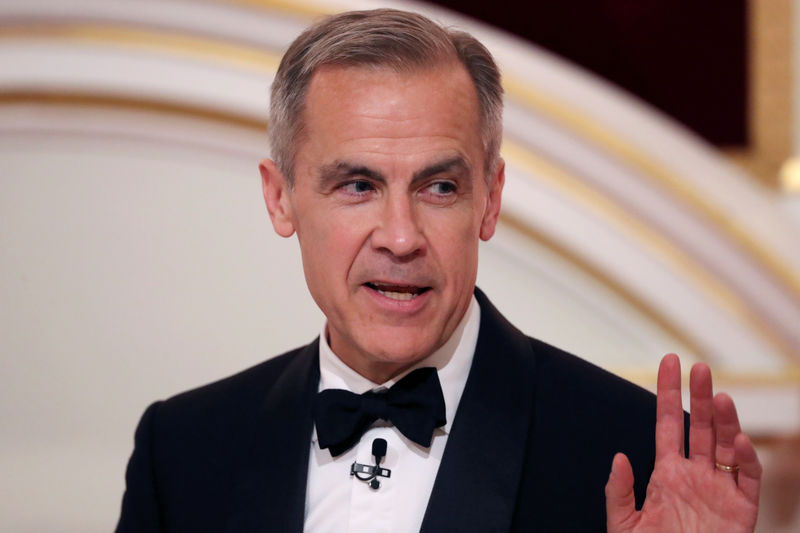LONDON (Reuters) - Bank of England Governor Mark Carney has dismissed a claim by Boris Johnson, the frontrunner in the race to become prime minister, that Britain can avoid the hit of European Union trade tariffs in the event of a no-deal Brexit.
Carney told the BBC that leaving the EU without a transition deal should be a choice taken with "absolute clarity" about what it would mean for Britain's economy, which would sustain both short- and long-term damage.
Many companies were not fully ready for such an abrupt shift, he said.
Johnson has said that world trade rules include a provision, known as Article 24 of the GATT, that permits trade to continue unchanged between two parties if they so decide.
But Carney said such an arrangement applied only when a trade deal was in place or about to be in place.
"So... we should be clear that not having an agreement with the European Union would mean that there are tariffs, automatically, because the Europeans have to apply the same rules to us as they apply to everyone else," he said.
Carney has previously warned about the economic impact of a no-deal Brexit, prompting anger among Brexit supporters.
Johnson and foreign minister Jeremy Hunt, the other contender to replace Theresa May as prime minister, have said they are prepared to take the country out of the EU without a transition deal if necessary.
Some 150,000 export businesses had failed so far to complete the paperwork needed to continue to sell to the EU after a no-deal Brexit, and even those businesses that had prepared were not fully ready, Carney told the BBC.
Even firms that had built up stocks of imported supplies would run out within weeks in case of major disruption, with particular challenges in sectors such as the car industry.

"Business will be reliant on what governments are able to do to keep the ports open, trade flowing," Carney said